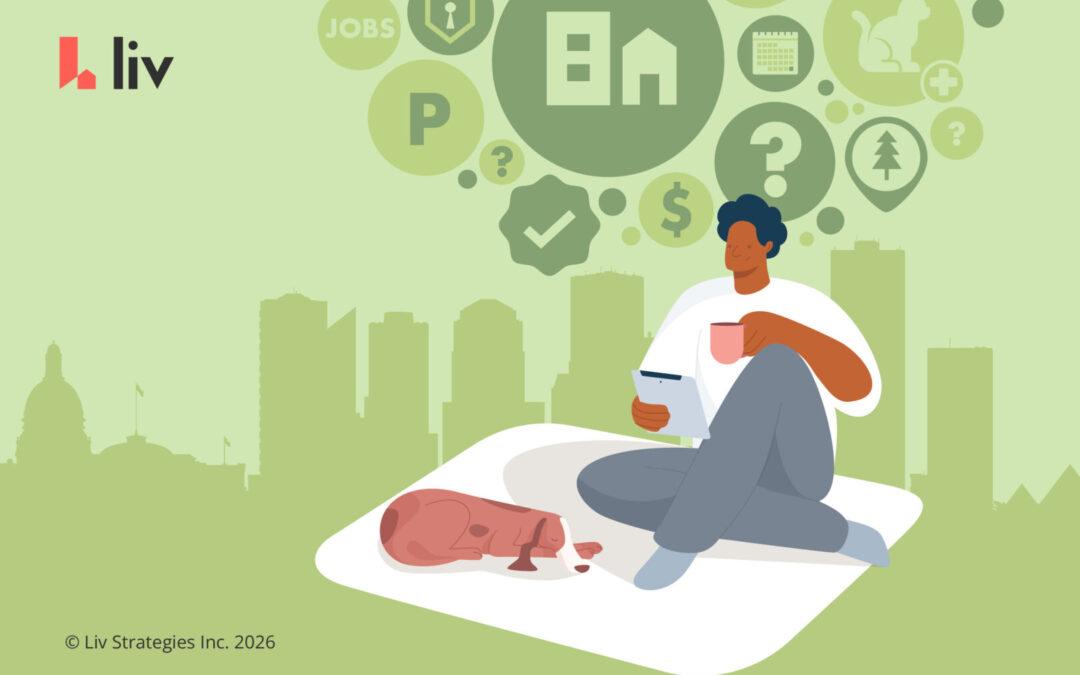Landlords require a lot of sensitive information as part of the rental process, but do you know what they’re allowed to ask you?
Welcome to our FAQ series, we’re liv.rent and we’re your all-in-one platform that makes renting safe, secure, and easy.
Join us and subscribe to get updates on the Toronto rental market.
In this article, we’re going to go over the most popular questions that renters (including first-time renters) have about the rental process.
This is part three of our four-part series and you can check out the rest of the FAQs below:
Join Our Newsletter
For more info on rental laws and policies (e.g. eviction, lease agreements, repairs & maintenance), subscribe to get the latest news.
What can a landlord ask for on a rental application in Ontario?
Before they decide whether to rent to you, a landlord can ask for your:
- Full name
- Income
- Employment status/ place of work
- References from past landlords
- Consent to a credit check
They can also ask you how many people will be living in the suite with you, plus their names. And, they’re allowed to ask whether you have pets or smoke.
Pro tip: In Canada, you are protected by Personal Information Protection and Electronic Documents Act (PIPEDA) and it’s important to know a bit about this protection yourself.
Learn more:
What can’t a landlord ask for on a rental application in Ontario?
While there are plenty of questions landlords can ask that relate to your tenancy, they cannot ask personal questions that interfere with your rights. These include things like:
- Age
- Marital status
- Sexual orientation
- Gender expression
- Family relations
- Place of origin
…and anything else that may infringe on your Human Rights.
Learn More:
Is lying on a rental application legal?
Lying or misrepresenting yourself on a rental application is not legal. It is fraudulent.
Complete honesty is the only approach you should take to renting. Plus, the tenant screening process of checking references and running credit checks often carried out by home rental sites would likely uncover lies about rental and financial histories.
Learn more:
- Frequently Asked Questions: Everything You Need to Know About Eviction in Ontario
- Ontario Standard Lease Explained
Do landlords call previous landlords?
Yes, landlords will call a tenant’s references (previous landlords) to verify rental history as part of their tenant screening process. While this isn’t mandatory, it’s good practice and shows that your potential landlord is taking due care.
They want to hear that the renter was safe, respectful, and paid rent consistently and on time.
If you don’t have a rental history, then there are other ways you are able to demonstrate your trustworthiness by providing enough financial and employment documents for the landlord.
Pro tip: use your liv.rent renter’s resume to hold, store, and organize your references. That way, they’re always available to you when you’re ready to apply for a rental.
Can a landlord see how much money is in your bank account?
You may be wondering about what financial information can a landlord ask for firstly, no, landlords cannot see how much money is in your bank account. If you provide your bank account number to your landlord, then they are obligated to keep that information confidential and your bank will not disclose your balance to them.
You may wish to provide a potential landlord with bank statements if you do not have payslips or other ways to demonstrate your financial fitness as a renter — perhaps if you don’t have a banking history in Canada or you’re a student.
Learn more:
Can a landlord refuse to rent to someone in Ontario?
Yes, landlords can refuse to rent to people in Ontario as long as they’re following the Ontario Human Rights Code and Residential Tenancies Act, which afford renters some protections against discrimination based on age, race, family status etc.
So, for example, a landlord could refuse you an apartment because they feel like your income isn’t sufficient enough to afford the rent. They are not, however, allowed to deny you the unit because you have small children.
Learn more:
Can a landlord say no pets in Ontario?
Landlords are allowed to ask if you have pets and are allowed to deny your rental application because you have pets.
However, in Ontario, “no pets” clauses in leases are void and not enforceable according to the Residential Tenancies Act. One exception is in condos where any strata rules banning pets are upheld.
Pro tip: liv.rent has more pet-friendly rentals than any other apartment rental site.
Search for listings now:
Can a new landlord increase rent in Ontario?
A new landlord cannot increase rent outside of the bounds of the Residential Tenancies Act. So, just because you have a new landlord doesn’t mean they can raise the rent.
In Ontario, rents can be raised up to the maximum allowable increase either 12 months after the last rent increase or the start date of the tenancy. But that’s only for buildings built before November 15, 2018.
“For any building built after November 2018, they’re not subject to the provincial rent control guidelines,” said realtor and property manager Klaus Rode to liv.rent for our Ask An Expert series.
Learn more:
Do I have to tell my landlord if someone moves in with me in Ontario?
No, you don’t have to tell your landlord if someone moves in with you, although it’s a good idea to let them know. You can do so through secure house rental sites like liv.rent to ensure you always have a record of these conversations.
After all, you may need a reference from them in the future. It’s important to have an amicable relationship with your landlord.
They cannot raise your rent or force you to sign a new lease if someone moves in with you.
Search for listings now:
Can my landlord force me to get renters insurance in Ontario?
Landlords can add a condition on the lease that requires tenants to have insurance but can a landlord ask for medical information? In Ontario, a landlord generally cannot ask for medical information from a potential tenant, as this could be considered discrimination based on disability under the Human Rights Code; however, if a tenant requests an accommodation due to a disability, a landlord may ask for relevant medical documentation to understand the specific needs and limitations but must keep this information confidential and only request the minimum necessary to assess the accommodation request.
So, it’s up to the tenant to agree to that condition. They can either obtain insurance or look for a different place to rent.
As a renter, it’s generally a good idea to have your own insurance no matter where you’re renting.
Learn more:
- 11 Trustworthy Tenant Insurance Providers For Renters In Ontario
- Ask An Expert: Duuo’s Katie Garland On Tenant Insurance FAQs
Do apartments call your employer?
Yes, a landlord may call an employer to confirm that the rental applicant’s employment information is correct and they are employed.
This is part of a landlord’s tenant screening process to ensure that the applicant is financially fit to rent.
Learn more:
What shows up on a rental credit check?
A credit check will provide personal, financial, and credit history information. Here’s some of the information it may pull:
Personal information
- Full name
- Date of birth
- Social insurance number (SIN)
- Passport number
- Driver’s license number
- Current and previous addresses
- Phone numbers
- Employment history
Financial information
- Collection agency debts
- Credit you use like credit cards, lines of credit, and loans
- Fraud alerts linked to your identity
- Closed chequing or savings accounts closed because of money owed or fraud committed
Things like mortgages and utilities can also show up on your credit report.
Learn more:
Can a landlord ask for your credit card number?
No, landlords can’t ask for your credit card number. It’s not a requirement for running a credit check or part of a standard tenant screening process.
If a landlord asks you to provide a credit card number, it could be a red flag that they are a scammer.
Pro tip: Use a trusted rental platform like liv.rent with verified landlords and listings to protect yourself from scams.
Learn more:
liv.rent – Search apartments & houses for rent in Toronto
Search houses, rooms, condos and apartments for rent in Toronto. Chat instantly with verified landlords. Apply to multiple listings. Save your chat history & signed documents all in one platform.
Renting in Ontario
For information on renting in Ontario, refer to these resource posts about leases and evictions.
- Ontario Standard Lease Explained
- Frequently Asked Questions: Everything You Need to Know About Eviction in Ontario
- Renting: Changes During COVID-19
- PIPEDA: Personal Information Protection and Electronic Documents Act

Rethink The Way You Rent
Not on liv.rent yet? Experience the ease of digital applications & contracts, verified tenants & landlords, virtual tours and more – all on one platform. Sign up for free or download the app.
Subscribe to receive the latest tenant & landlord tips and get notified about changes in the Canadian rental market.
>> Stay up-to-date on the average rent in Vancouver, Toronto and Montreal: Rent Reports.



0 Comments